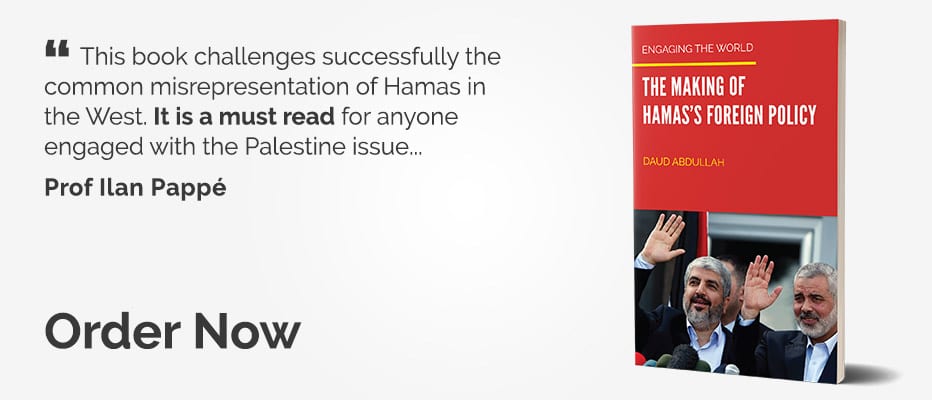There is an air of mourning in Bandli, a small village nestled among lush green hills in Pakistan-administered Kashmir, Anadolu Agency reports.
Grief has gripped this village since last week's shipwreck off the coast of Greece, a tragedy that has claimed the lives of hundreds of migrants and asylum seekers.
Bandli, which lies over 200 kilometres (125 miles) south-east of the region's capital, Muzaffarabad, and its people are mourning for 28 sons, all believed to have perished in the disaster.
There are no bodies here in white shrouds, though, making the pain all the more difficult to bear.
"We can't even cry because we don't know their fate. We don't have their bodies," Abid Rajorvi said through tears.
His cousins, Imran Wazeer and Abdul Salam, were on the vessel attempting an ill-fated journey from Libya to Italy.
READ: 300 Pakistanis presumed dead in shipwreck off Greek
The trawler, packed with over 700 people, including women and children, sank off the south-western coast of Greece in the early hours of 14 June, close to the deepest point of the Mediterranean Sea.
Greece is facing intense scrutiny over the disaster, with new revelations by local and international media contradicting its claims about how the tragedy occurred.
The reports indicate that the boat was stationary for hours before it eventually capsized, as well as that a Greek Coast Guard boat was in contact with it on the afternoon of 13 June, many hours before its overnight sinking.
Only 81 bodies have been pulled out and 104 people rescued, meaning that hundreds more are missing and unlikely to be ever found.
'Lured by promises of a better life'
In Bandli, people are still clinging to hope, or as Rajorvi said, "desperately praying for a miracle".
There is also anger at the "agents", a term used locally for the traffickers who arrange these perilous journeys.
With unconfirmed estimates of up to 400 Pakistanis being on board the vessel, the Pakistani government observed a national day of mourning on Monday.
For Rajorvi and the others affected, however, the government is equally at fault, particularly for its failure to stop the operations of human smugglers.
According to Rajorvi, around 300 men from Kotli, the district which includes Bandli, have left for Europe in the past two to three years.
Many of them are unhappy and want to come back, but do not have the means, he said.
He said Wazeer and Salam – both bachelors in their mid-20s – were also "lured by traffickers with dreams of a better life in Europe."
"They were living comfortably here. They had their own homes and were earning decently. Imran ran a grocery store and Abdul had his own business," Rajorvi told Anadolu in a phone call.
He said their families were strictly against them leaving for Europe, but both of them persisted.
READ: 9 Egyptians arrested and accused of smuggling after Greek boat tragedy
They took out loans and borrowed from friends and relatives to pay 2.3 million Pakistani rupees ($8,000) each to the traffickers, he said.
On the morning of 13 March, Wazeer and Salam said their final goodbyes and set off.
Wazeer's father begged him to stay, as his eldest brother had died just a few months ago, said Rajorvi.
"His father told him that he couldn't bear another loss, but Imran just wouldn't listen," he recalled.
The fateful journey
They first travelled south to Karachi, Pakistan's largest city, where they caught a flight to Dubai, said Rajorvi.
From Dubai, they went on to Egypt and then Libya, where they were arrested while waiting to board a boat to Italy and detained for more than a month.
"They were treated very badly and both of them fell ill there," he said, sharing a photo of the two in Libya, their hair and beards unkempt and clothes crumpled.
Wazeer and Salam called their families the night before they were due to set sail for Italy, asking for prayers for a safe passage.
A few days later, the families found out about the disaster through social media, while Adnan Bashir, one of the survivors who is from their village, confirmed that they were on the boat.
"I just thank God that their mothers are not alive today. This would be too much to bear for any mother," said Rajorvi.
READ: Survivors say Greek Coast Guard 'directly involved' in deadly shipwreck: EU lawmaker

![Pakistani irregular migrants on July 27, 2021 [Mesut Varol/Anadolu Agency via Getty Images]](https://i0.wp.com/www.middleeastmonitor.com/wp-content/uploads/2023/06/GettyImages-1234262344-scaled-e1687267641392.jpg?resize=1200%2C800&quality=85&strip=all&zoom=1&ssl=1)

